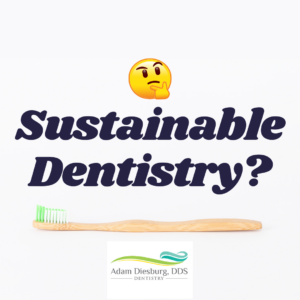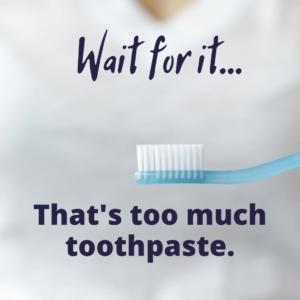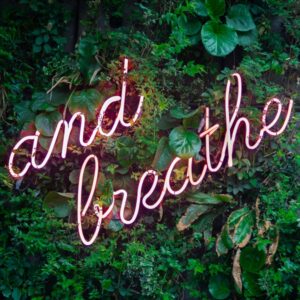Valentine’s Day is just around the corner. Are you prepared? We don’t mean chocolates and roses, we’re talking about the scourge of all dates, halitosis, also known as bad breath! Bad breath doesn’t have to be a problem with these tips for management.
Breathing Bad
Halitosis, or bad breath, can come from poor dental hygiene and can be a sign of other health problems. If you find bad breath a problem, or if perhaps your spouse or significant other is shying away from getting near your mouth, it’s time to be proactive.
How do you get bad breath?
When you eat, saliva and chewing break down food in your mouth. As foods are digested and nutrients are absorbed into the bloodstream, they are carried into your lungs and often given off in your breath. “Bad breath isn’t just a problem with your mouth, it goes back to a systemic problem within your whole body,” says Dr. Adam Diesburg.
Foods that give you bad breath
Some foods are more likely to make your breath smell strong. If you eat foods with strong odors such as garlic and onions, brushing, flossing and mouthwash will only cover up the odor temporarily. The odor will stick along as long as the food is in your system.
What about poor dental habits?
When you don’t brush and floss daily, food particles can remain in your mouth, promoting bacteria to grow there between the teeth and around the gums and on the tongue. That bacterial growth causes bad breath. If your poor habits continue, bad breath can lead to other problems, such as respiratory tract infections, chronic sinus infections, acid reflux and liver or kidney problems. Need to bone up on your brushing technique? You can do it here.
Smoking can be a factor
If you smoke or chew tobacco products, you may also experience bad breath, as well as stained teeth and reduced ability to taste.
So what do I do if I have bad breath?
If you’ve identified bad breath, it’s not too late. You can take steps to reduce the distasteful state of your breath and improve your overall health in the process.
Here’s where to start:
1. Fix your habits. Practice good dental hygiene. Brush twice a day with flouride toothpaste and floss once a day.
2. See your dentist regularly. Your dentist will be able to determine whether you simply need a cleaning or if there are other factors contributing to your bad breath, such as periodontal disease, or disease of the gum.
3. Sop smoking of chewing tobacco. If you are having difficulty, consult a health professional for support.
4. Drink lots of water. Drinking water keeps your mouth moist. Chewing sugarless gum can also stimulate the production of saliva to keep your mouth moist.
5. Pay attention to what foods you eat and medications. Your dentist can help you determine if your diet is contributing to your bad breath.
6. Brush your tongue. Really. Including your tongue in your oral hygiene habits will help keep your whole mouth happy and reduce places bacteria can fester.
What about products for bad breath? Mouthwashes and bad breath products only mask the odor. They don’t actually get rid of bad breath. If you need a quick fix, see your dentist in McMinnville to determine which product is right for you.
That might be fine for Valentine’s Day, but if you’re committed to fixing your bad breath problem over the long term, follow the rules above and you’ll see a difference.




